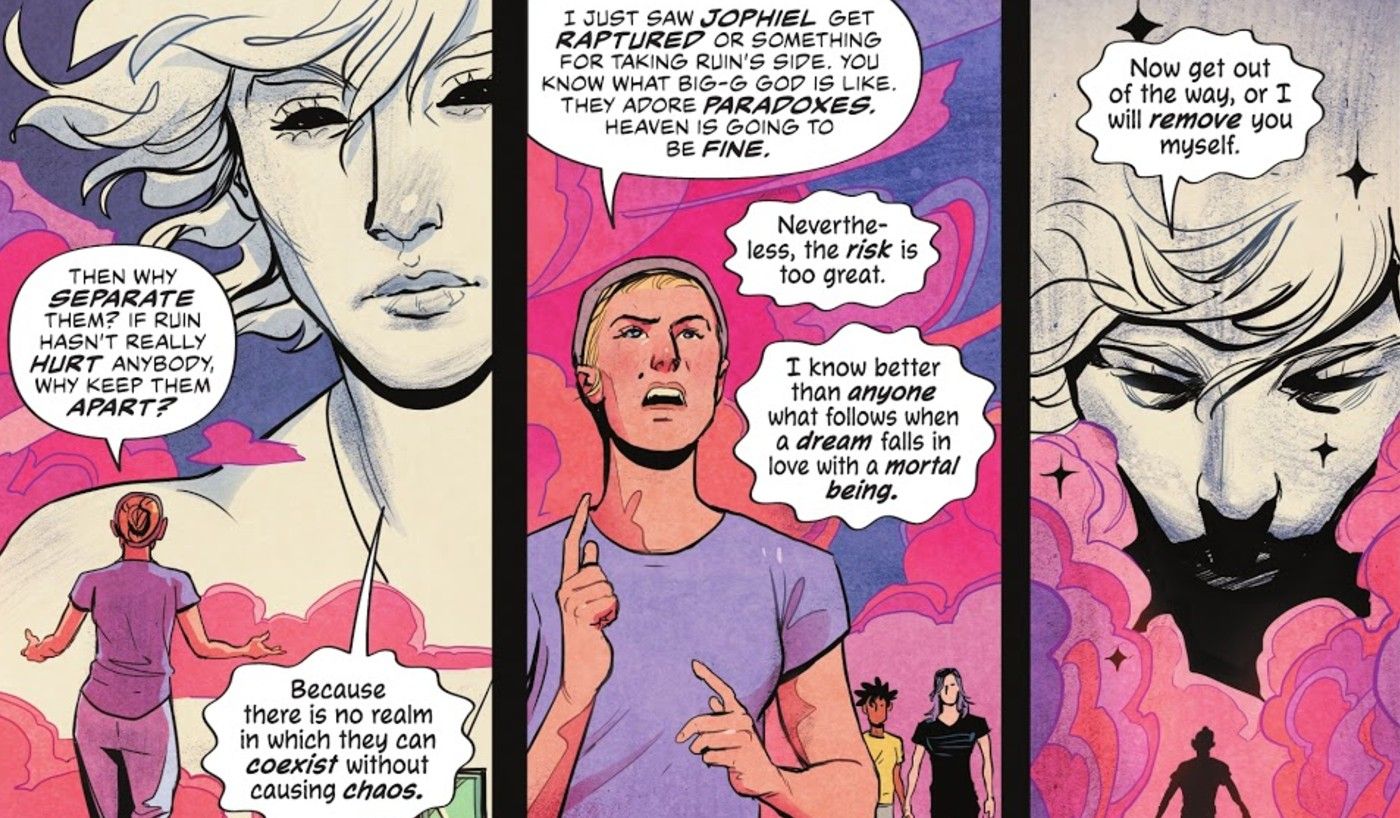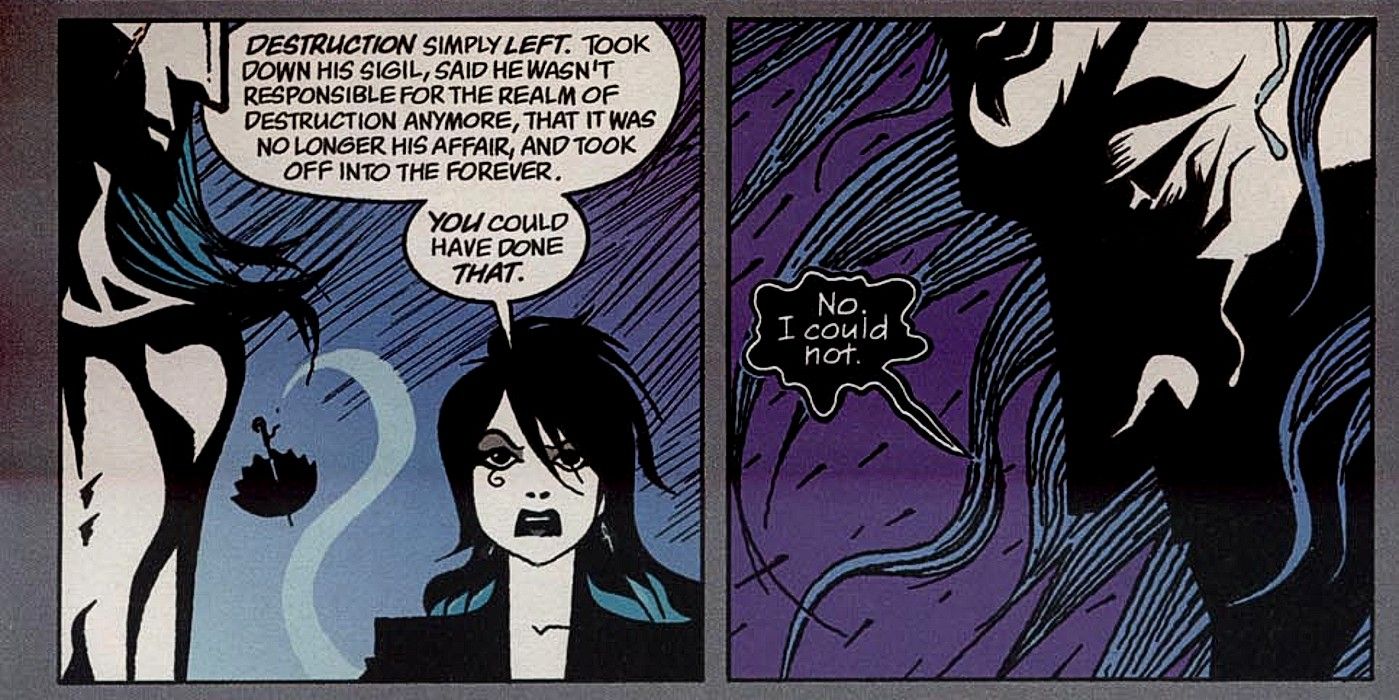Warning: contains spoilers for The Dreaming: Waking Hours #12!
With the newest spin-off of Neil Gaiman’s seminal series The Sandman coming to a close in The Dreaming: Waking Hours #12, old questions are arising regarding the King of Dreams, and whether or not he really learned anything from the tragic death he suffered at the climax of the original series. Since its inception, the textured dreamscape spun by Gaiman, his collaborators, and his successors has always concerned itself with fundamentally human questions (despite being at least partially about beings even more powerful than gods), chief among them, “is it really possible for someone to change?” As the Black Label maxi-series The Dreaming: Waking Hours demonstrates, sometimes change can be hard to come by, even if you sacrifice your very being to accomplish it.
Waking Hours, written by G. Willow Wilson with art by Nick Robles, M.K. Perker, and Javier Rodriguez, involves a young nightmare (the literal personification of a bad dream) named Ruin, who falls in love with a mortal man named Ben, choosing to forsake his duties as an immortal concept in order to find his love in the waking world. Unlike many previous tales set in the Dreaming, however, the spotlight begins to shine more prominently upon Dream of the Endless, or Daniel as he is sometimes known, as he repeatedly forgives and even encourages Ruin to continue his quest to find love, even if it might mean Ruin’s eventual death.
At the culmination of the series, Ruin – having found camaraderie in the fallen angel Jophiel and the sorceress Heather After as well as battled his way through the land of Faerie, is finally united with Ben through random chance. While a happy ending seems on the docket for the pair, their tryst is interrupted by Dream, who demands they separate, never to see each other again. The undying, unconscious aspect of all living creatures’ inner fantasies, Dream claims that Ruin’s quest has led to only chaos, and threatens conflict between the Dreaming and the other realms, including Heaven itself. “I know better than anyone what follows when a dream falls in love with a mortal being.” And in so saying, he sounds quite a bit like the entity he used to be… an entity who gave up everything in order to change.

Lord Morpheus, Dream’s previous incarnation, was a hard-hearted king of a realm of wonders, who became lonely over the eons due to his unyielding nature. An at-times vengeful figure, over his long life Morpheus eventually found himself committing cruel acts against those he claimed to love in the name of seeing their stories to the correct conclusion. Gradually he came to realize that his greatest flaw, and the cause of his loneliness, was his inability to change his nature, and so he orchestrated a series of events which led to his own death so he might be reincarnated as a more optimistic and open aspect of himself. While the new Dream is defeated by Heather After, using the threat of the same spell her Great-Grandfather Roderick Burgess once used to imprison the original Morpheus, this conclusion is a tragic one which might serve to undercut Gaiman’s original narrative.

Throughout The Dreaming: Waking Hours, the new Dream is noteworthy for the hopeful qualities he was created for; he is forgiving of Ruin and willing to let him make his own choices, he is encouraging of Ruin when he uses his powers of nightmare upon oppressive villains, but at the end, he pits himself against him because he can’t bend his understanding of love to preclude his own past traumas – traumas from another life entirely. In his unwillingness to do so, even if it was not his intention, the new Dream has become exactly like the former self shown in The Sandman, raising the possibility that even after everything Morpheus did to become someone new, he may have failed to meaningfully change his nature.




